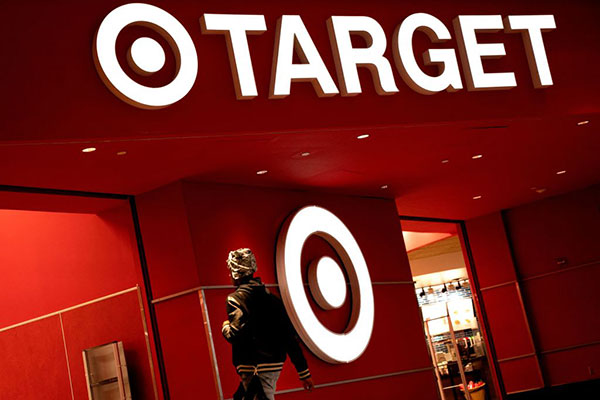Target and Walmart shock hammers Tesco, Diageo and Unilever
19th May 2022 14:38
by Graeme Evans from interactive investor
A surge in business costs is having a significant effect on the retail sector. Our City expert explains what’s happening in the UK and why events over the pond are such a big concern.

Consumer spending fears pushed shares in Tesco (LSE:TSCO), Diageo (LSE:DGE) and Unilever (LSE:ULVR) sharply lower today as investors reacted to a big profits warning by US retailer Target (NYSE:TGT).
The Minneapolis-based chain, which has 2,000 stores, missed first-quarter forecasts and warned of a margins hit from rising fuel and freight costs. It also reported a shift in consumer spending away from stay-at-home “big ticket” categories such as furniture and TVs.
Target’s shares fell 25% for its biggest decline since 1987 and triggered a 4% fall for the S&P 500 in its worst performance since June 2020. Only eight stocks ended the day higher.
The US benchmark is heading for a seventh consecutive week in negative territory, which would be the longest run of declines for the index since 2001 as worries grow over the impact of high inflation on corporate earnings and consumer demand.
Deutsche Bank analyst Henry Allen said housing data and this week’s poor updates from Target and Walmart (NYSE:WMT) raised concerns that the US consumer might not be in as strong a position as previously thought.
He said: “That’s on top of all the other worries of late that the global economy is heading in a stagflationary direction amidst various supply chain issues, alongside the prospect that tighter central bank policy is going to further dent growth and risks tipping various economies into recession.”
- ii view: Tesco remains a retail sector favourite
- Experts name a key holding and deep value stocks in the retail sector
- Five retail stocks set to thrive
The US anxieties transferred to London today as fears over the much weaker growth outlook left the FTSE 350 index 2% lower. Tesco retreated 13p to 252.8p and B&Q owner Kingfisher (LSE:KGF) fell 10.4p to 243.1p, although these declines were also due to shares trading without the right to their latest dividend awards.
In the FTSE 250, the electronics business Currys (LSE:CURY) tumbled 4.5p to 79.9p on worries that consumers may lose their appetite for big-ticket purchases.
The sell-off also caught outsourcer Bunzl (LSE:BNZL), which generates about 35% of its revenues from supplying not-for-sale items such as packaging and hygiene products to customers in the retail and grocery sectors. The shares, which went ex-dividend today, fell 166p to 2753p.
Investment firm 3i (LSE:III)’s ownership of Netherlands-based discount retail chain Action also contributed to its shares falling 115p to 1209p, given that Action accounts for over half of assets in its private equity division.
When 3i reported annual results earlier this month, chief executive Simon Borrows described Action as a “formidable retail company that will continue to grow and thrive in today's challenging environment”.
- Warren Buffett: stocks I’m buying and AGM comments
- The benefits of buying shares in a resilient global brand
More details on spending trends and the appetite for major purchases should emerge tomorrow when the Office for National Statistics (ONS) publishes retail sales figures for April and Gfk posts its latest consumer confidence barometer.
A further 0.2% decline is expected from the ONS after the previous month’s fall of 1.4%, while the headline reading from Gfk is forecast to deteriorate from last month’s minus 38.
More weak figures will heighten speculation that the UK is heading for a recession.
Despite this threat, Capital Economics believes there are reasons to think that a very big and prolonged crash in spending is not necessarily on the cards.
Its economist Nicholas Farr said households’ large stock of savings following the pandemic and the tightness in the labour market meant that weak confidence may not weigh on consumer spending as much as in the past.
He said: “We expect the labour market to remain tight this year, even as the economy slows. A higher level of job security is another reason to think households are likely to be more willing to reduce their saving rate to support their spending.”
These articles are provided for information purposes only. Occasionally, an opinion about whether to buy or sell a specific investment may be provided by third parties. The content is not intended to be a personal recommendation to buy or sell any financial instrument or product, or to adopt any investment strategy as it is not provided based on an assessment of your investing knowledge and experience, your financial situation or your investment objectives. The value of your investments, and the income derived from them, may go down as well as up. You may not get back all the money that you invest. The investments referred to in this article may not be suitable for all investors, and if in doubt, an investor should seek advice from a qualified investment adviser.
Full performance can be found on the company or index summary page on the interactive investor website. Simply click on the company's or index name highlighted in the article.